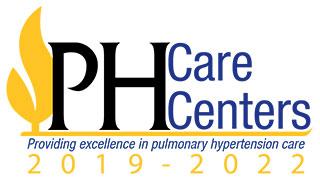How Is Pulmonary Hypertension Diagnosed?
Our pulmonologists are experts at evaluating symptoms to confirm a diagnosis. We begin with a thorough evaluation that includes a:
- Physical exam
- Review of personal and family medical history
- Discussion of symptoms
If they suspect pulmonary hypertension, they usually order an echocardiogram, or echo. An echocardiogram uses sound waves to create images of the heart to see how well it is beating and pumping blood. It also helps evaluate blood pressure in the lung arteries.
Other tests that are useful in confirming a diagnosis of pulmonary hypertension include:
- Blood tests to check for signs of pulmonary hypertension or other, underlying conditions
- Chest X-ray to rule out other causes for symptoms
- Echocardiogram, or echo, to see how well the heart is beating and pumping blood and to evaluate blood pressure in the lung arteries
- Electrocardiogram to check heart rhythm
- Magnetic resonance imaging (MRI) scan to create detailed images of the heart, using radio waves and magnets, to evaluate right ventricle function and blood flow to the lungs
- Pulmonary function tests to evaluate lung function, such as the rate of air flow in and out of the lungs, how well the lungs move oxygen into the bloodstream, and lung size
- Ventilation/perfusion (VQ) scan to check for chronic blood clots
If tests indicate pulmonary hypertension, our specialists recommend patients undergo a right heart catheterization to confirm the diagnosis. During this test, a thin tube (catheter) is inserted into a small incision in the neck or groin. The doctor uses the catheter to measure blood pressure in the lungs and heart, and measure how much blood the heart is pumping.
Some patients might need to undergo other tests, based on their history or the results of the initial evaluation. These can include:
- Pulmonary angiography to look for chronic blood clots
- Sleep study to check for sleep apnea








